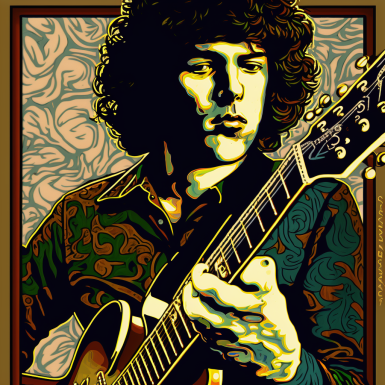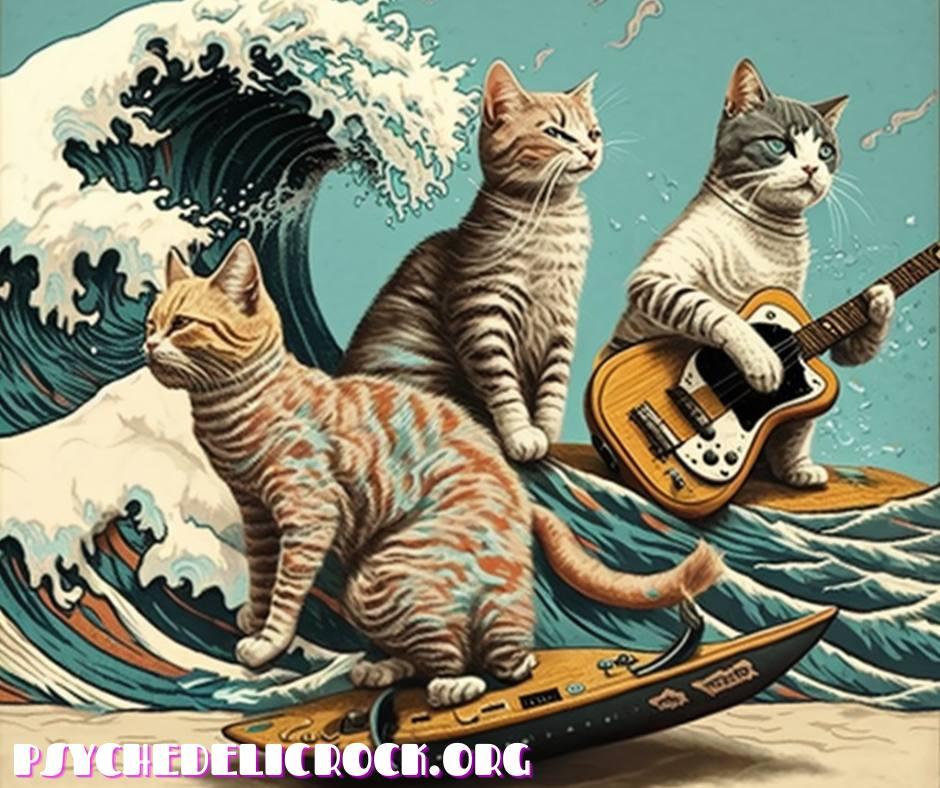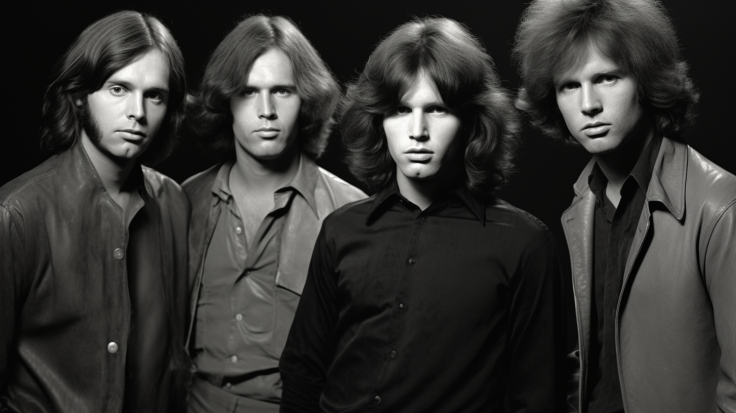
 13th Floor Elevators: The Band That Rattled the Psychedelic Rock Scene
13th Floor Elevators: The Band That Rattled the Psychedelic Rock Scene
The 13th Floor Elevators were a pioneering psychedelic rock band that emerged from Texas in the mid-1960s. The band, consisting of Roky Erickson, Tommy Hall, Stacy Sutherland, Benny Thurman, and John Ike Walton, had a profound impact on the psychedelic rock movement, influencing many artists that followed.
The band’s unique sound, which featured Tommy Hall’s electric jug and Roky Erickson’s distinctive vocals and guitar work, was unlike anything heard before. This article will explore the origins of the 13th Floor Elevators, their music and influence, and their enduring legacy.

Origins of the 13th Floor Elevators
The 13th Floor Elevators formed in Austin, Texas, in 1965. The band members were all music enthusiasts who shared an interest in psychedelic sounds and philosophy. Roky Erickson, who was only 17 at the time, was the band’s lead vocalist and guitarist.
Tommy Hall, a philosophy student, played the electric jug, an instrument he believed could produce the sound of the human brainwaves. Stacy Sutherland played guitar, Benny Thurman played bass, and John Ike Walton played drums.
The band’s early music was heavily influenced by blues and rock and roll, but they soon began incorporating psychedelic sounds into their music. They were heavily influenced by bands like the Beatles, and the Yardbirds, and their music reflected these influences.
Debut Album: The Psychedelic Sounds of the 13th Floor Elevators
The 13th Floor Elevators’ debut album, The Psychedelic Sounds of the 13th Floor Elevators, was released in 1966. The album featured the band’s signature sound, which was characterized by Tommy Hall’s electric jug and Roky Erickson’s distinctive vocals and guitar work. The album was a critical success, and it had a significant influence on the psychedelic rock movement.
One of the standout features of the album was Tommy Hall’s use of the electric jug. The instrument, which was essentially an electrified jug, produced a sound that was similar to a theremin. Hall believed that the jug could produce the sound of the human brainwaves, and he used it to create an otherworldly sound that was unlike anything heard before.
The album’s tracklist included songs like “You’re Gonna Miss Me,” “Reverberation (Doubt),” and “Roller Coaster.” The lyrics were often cryptic and surreal, reflecting the band’s interest in psychedelic philosophy. The album’s sound was innovative and experimental, and it had a significant impact on the psychedelic rock movement.
Roky Erickson: The Voice of the 13th Floor Elevators
Roky Erickson was the driving force behind the 13th Floor Elevators. His distinctive vocals and innovative guitar work helped define the band’s sound. Erickson’s voice was raw and powerful, and it conveyed a sense of urgency and intensity that was characteristic of the psychedelic rock movement.

Erickson’s solo career was marked by both success and tragedy. He struggled with mental illness throughout his life and spent time in a mental hospital and in prison. Despite these challenges, he continued to make music and released several albums throughout his career. Erickson’s influence on psychedelic rock cannot be overstated, and his legacy continues to inspire musicians to this day.
Stacy Sutherland: The Guitarist Who Rattled Minds
In addition to Roky Erickson’s distinctive vocals, the 13th Floor Elevators were also known for their innovative guitar work, which was largely the product of lead guitarist Stacy Sutherland. Sutherland had a unique style that combined heavy distortion with a melodic, blues-inspired approach.

Sutherland’s guitar work was a crucial part of the band’s sound, and he contributed heavily to their second album, “Easter Everywhere”. This album is widely considered to be one of the band’s best, and it features some of Sutherland’s most iconic guitar work.
Unfortunately, Sutherland’s time with the 13th Floor Elevators was cut short when he was tragically killed in a 1978 shooting incident. Despite his untimely death, Sutherland’s legacy lives on, and his innovative guitar sound continues to inspire new generations of musicians.
Easter Everywhere – The Band’s Second Studio Album
“Easter Everywhere” is the second studio album by the American psychedelic rock band 13th Floor Elevators, released in 1967. The album features the band’s signature sound, combining psychedelic rock with elements of blues and folk music. It is considered one of the most influential albums of the 1960s, and a seminal work in the development of psychedelic music.
The album was recorded in Houston, Texas, and produced by the band’s lead singer Roky Erickson and engineer Walt Andrus. The album features the classic lineup of the band, with Roky Erickson on vocals and guitar, Tommy Hall on electric jug and vocals, Stacy Sutherland on guitar, Benny Thurman on bass, and John Ike Walton on drums.
The album’s title is a reference to the Easter holiday, and the album’s themes reflect the band’s interest in spirituality and mysticism. The album features several standout tracks, including “Slip Inside This House,” a psychedelic epic that clocks in at over eight minutes, “Earthquake,” a bluesy number that features Tommy Hall’s trademark electric jug, and “She Lives (In a Time of Her Own),” a catchy and upbeat rock song.
Other notable tracks on the album include “Nobody to Love,” a haunting ballad with a mournful vocal performance from Erickson, “Postures (Leave Your Body Behind),” a hypnotic and trance-inducing instrumental track, and “Whirlpool,” a dark and brooding song that features some of Erickson’s most intense vocal performances.
Overall, “Easter Everywhere” is a groundbreaking album that helped to define the sound of psychedelic rock. Its combination of blues, folk, and psychedelic elements, as well as its focus on spirituality and mysticism, influenced countless bands in the years to come.
The Band’s Impact on Psychedelic Rock
The 13th Floor Elevators was a groundbreaking band in many ways, and their influence on the development of psychedelic rock cannot be overstated. The band’s unique sound, which combined elements of blues, rock, and psychedelic music, was unlike anything that had come before it, and it helped to pave the way for countless other artists in the genre.
The band’s impact was particularly felt in San Francisco, where they played a number of legendary shows at venues like the Fillmore and the Avalon Ballroom. These performances helped to establish the 13th Floor Elevators as one of the most influential bands in the psychedelic rock scene, and they paved the way for countless other acts that followed in their footsteps.
Controversies and Legal Issues

Unfortunately, the 13th Floor Elevators were not without their share of controversies and legal issues. In 1969, Erickson was arrested for possession of marijuana, and the band’s manager, Lelan Rogers, was charged with possession of LSD. Later that year, Erickson was arrested again, this time for possession of a single marijuana joint.
In 1973, Erickson was involved in a domestic dispute with his wife, and he was charged with assault with a deadly weapon. He was eventually found not guilty by reason of insanity, and was committed to a mental hospital for several years.
During the band’s later years, they also struggled with lineup changes and internal tensions. By the time of the release of their final studio album, “Bull of the Woods”, in 1969, the band had undergone a number of personnel changes, and their sound had evolved significantly from their earlier albums.
Final Studio Album: Bull of the Woods
The 13th Floor Elevators released their final studio album, Bull of the Woods, in 1969. The album featured a different lineup than their previous albums, with only Roky Erickson and Tommy Hall remaining from the original band. Despite its mixed reception from critics, Bull of the Woods is an important album in the 13th Floor Elevators’ discography, showcasing their continued experimentation with psychedelic sounds and themes.
One of the standout tracks on Bull of the Woods is “Livin’ On,” which features a heavy, blues-influenced guitar riff and Erickson’s raw, emotional vocals. The album’s lyrics touch on themes of nature, spirituality, and social justice, showcasing the band’s continued commitment to promoting countercultural values.
Legacy of the 13th Floor Elevators
Although the 13th Floor Elevators only released three studio albums during their brief career, their influence on psychedelic rock cannot be overstated. Their debut album, The Psychedelic Sounds of the 13th Floor Elevators, is considered a classic of the genre and has inspired countless musicians over the years.
| Title | Album Information |
| The Psychedelic Sounds of the 13th Floor Elevators | Was released on October 17, 1966 |
| Easter Everywhere | Was released on October 25, 1967 |
| Bull of the Woods | Was released in March 1969 |
The band’s message of peace, love, and spiritual enlightenment, as well as their advocacy for psychedelic drug use, was influential in the counterculture of the 1960s. They were one of the first bands to embrace the psychedelic movement and helped to shape the sound of the genre.
The band’s music has inspired many contemporary artists and bands, including ZZ Top, Richard Lloyd, and Primal Scream among others who have covered the Elevators’ songs on various occasions.
In 2005, a panel at the SXSW music festival discussed the music of the Elevators and Powell St. John, one of the band’s songwriters, further cementing their influence on modern music.
The Elevators’ influence extends beyond the music industry, with their songs featuring in movies and television shows. “You’re Gonna Miss Me,” a hit song by the band, has been featured in various movies and TV shows, including High Fidelity, True Blood, and a Dell Computers XPS laptop ad.
Notably, Johnny Depp, the renowned actor, has praised the band’s influence on early Led Zeppelin in a 2004 interview with Esquire magazine. Other musicians such as Nebula, Queens of the Stone Age, and Names and Faces consider the Elevators a significant influence on the “stoner rock” scene.
Even Texas recording artist Ray Wylie Hubbard paid tribute to the band in his song “Screw You, We’re from Texas,” where he hailed them as the coolest band ever.
In recent times, the Elevators’ song “The Kingdom of Heaven (Is Within You)” featured in the second episode of the hit HBO series True Detective in 2014, signifying that the band’s legacy continues to live on and inspire new generations of musicians and artists alike.
The 13th Floor Elevators’ pioneering sound and approach to music have undoubtedly left an enduring legacy on modern music, and their influence is likely to continue for years to come.
13th Floor Elevators: An Enduring Influence on Psychedelic Rock

In conclusion, the 13th Floor Elevators were an influential band that played a significant role in shaping the psychedelic rock genre. They were among the first to use the term “psychedelic rock” to describe their music, which was characterized by its experimental sound, hallucinogenic lyrics, and use of electronic effects.
Many veterans in the psychedelic rock genre have recognized the importance of the 13th Floor Elevators. Roky Erickson, the band’s lead singer, is often regarded as a pioneer in the genre. In an interview with the Houston Chronicle, Erickson stated, “We were trying to open people’s minds to a different way of thinking, to different realities.” Similarly, John Densmore, the drummer of The Doors, has credited the 13th Floor Elevators for inspiring his band’s sound.
Overall, the 13th Floor Elevators’ impact on psychedelic rock cannot be overstated. Their unique sound and message continue to inspire musicians to this day. They are a testament to the power of music to challenge norms and expand our consciousness.
Categorised in: Psychedelic



